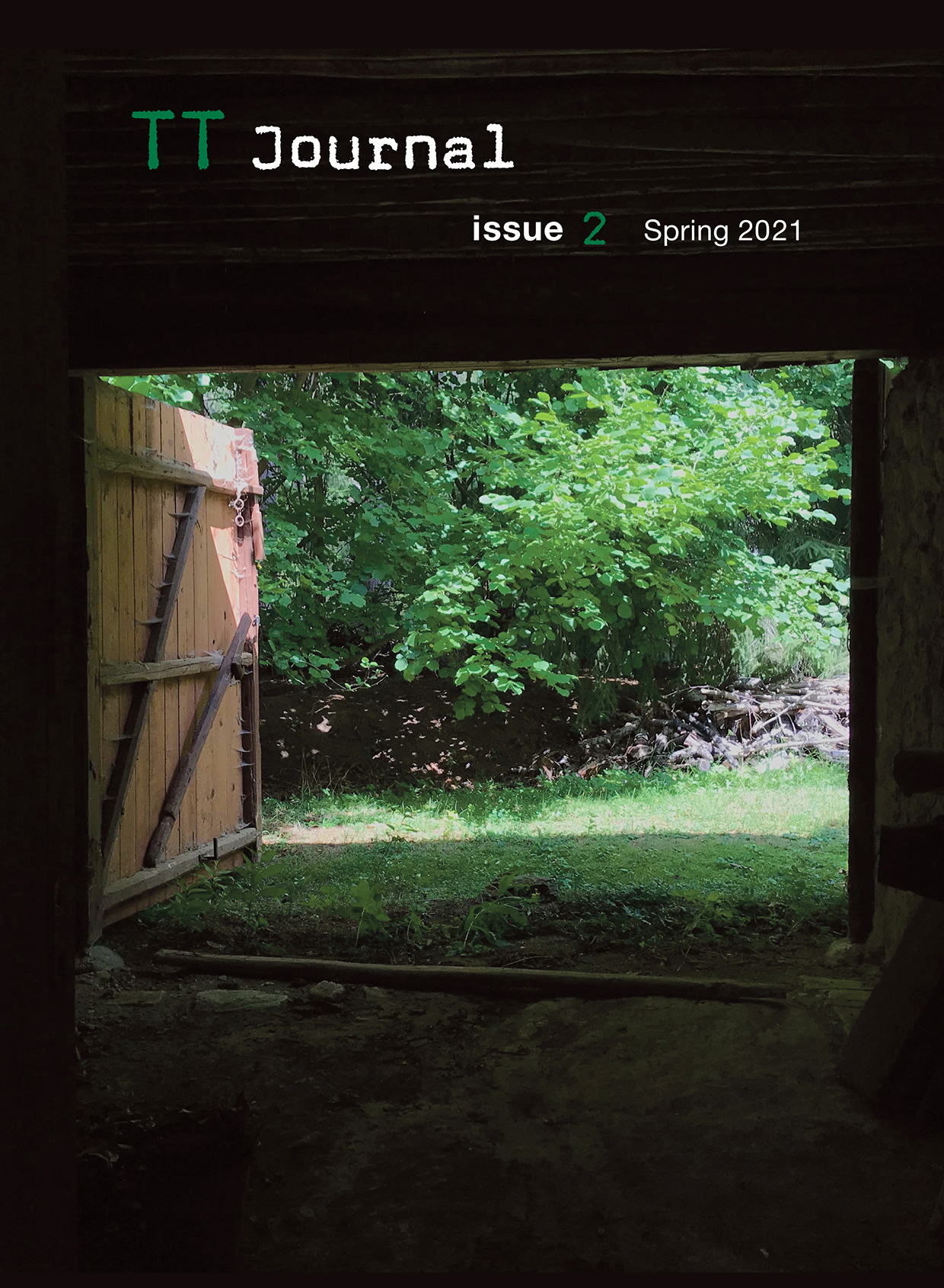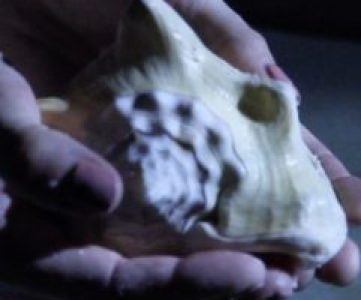Dear Reader,
Here is a second issue of our Tangible Territory journal, with a wonderful array of contributions, introducing various textures and flavours of experience, reflections and resonances by a number of inspiring artists, thinkers, writers and philosophers.
There are several currents that have emerged here, naturally, within the core themes of embodiment, virtualisation of experience and our senses helping us make sense of our world.
One that strikes me in particular is perhaps best expressed by the title of one of the contributions, which discusses the films of Jan Švankmajer as a master of reconciliation of opposites. This balancing of contradicting forces, which Jan Švankmajer achieves in his work, is an essential skill not just for artists but for anyone navigating life while trying to stay poised. It occurs to me that our modern existence is marked by the ongoing need for balancing of extreme lightness and extreme weight.
The lightness of technology which is able to virtually transport us to different locations at the click of a button gives us a sense we are immaterial, unconstrained, free from consequence. In this state of mind virtually everything is possible. We can be here and there at the same time. There is no need for an early morning alarm, no stressful journey to the airport while feeling hot as we get squashed inside a packed train, smelling other people’s perfumes, sweat, aftershave. There is no feeling of a jet lag as our body adjusts to a different time zone and new habits. Everything can happen inside a single space that is our bedroom or a living room. It is surreal and almost laughable and often liberating. All of this has its undoubted advantages. But it is also clear that there is a price to pay for this “unbearable lightness of being” (to borrow a phrase from Milan Kundera). The lightness and the ease come at the expense of weight and depth of experience. This virtual existence is of such a light touch it is easy to forget that a conference has just happened and it is certainly quite irrelevant whether it was in Mexico or China or somewhere just around the corner. There are no new scents, new encounters, new tastes, new spaces and places to walk through and overlay our memories onto. Everything plays itself out inside the very same rectangle.
Our Tangible territory journal is part of this ongoing paradox of modern experience. Its themes of embodiment, tangibility and the senses contradict its actual digital form, its intangible presence. At the same time though its immateriality is precisely one of its advantages: it is free of production cost and free to travel instantly to those who may find it of interest. Equally, it provides a useful space for questioning, exploring and reflecting on this need for a useful reconciliation of the digital, intangible and instant with the embodied, multi-sensory, time and body bound. As artist William Kentridge describes in his interview, the reconciliation of the virtual and the embodied is an ongoing pursuit, where the embracing of and the resistance to the algorithm must coexist.
The one obvious way of bringing ‘weight’ of the body and the material world into this journal is by making it the focus of the content itself. This is why food and eating has emerged as a natural sub-theme of this issue. Food gives nourishment, sensual pleasure, it grounds us and literally gives us weight! In this issue food (its preparation and eating) has been explored from philosophical and aesthetic angles, examined as a way of connecting, nurturing of oneself and of others, as a powerful source of embodied memory with a potential to unleash hidden emotions, activate childhood memories, reanimate our senses. Food becomes a substance and a medium that can help to ground the reader back in her body, while eating is a form of travel, of gaining experience without having to move from the dining table.
It is interesting to note at this point the clustering of themes and genders. The four food related articles in this issue are all by women authors. To me this is no coincidence. Yet equally this is not a confirmation of a stereotype of the woman in the kitchen: quite the opposite, it is a form of imaginative subversion of this traditional role.
Which brings me to another noteworthy theme: of the need for balancing the uniqueness of feminine and masculine qualities. This is one of the questions discussed by the Czech geologist and philosopher Václav Cílek and is something that is implicitly on my mind, when assembling content for the journal.
Hence come beards (stubble and all things in-between) to rescue, to bring the masculine voice, but also to remind us that the body, even when ignored, continues its own quietly tenacious rebellion, sprouting hair which threatens to obscure our cultured selves unless it is controlled with scissors or razors. This is a particularly hot topic at a time when, in the UK at least, the hairdressers have been shut for the past 4 months or so and our hair in general is getting out of control.
It is a year now since the first lockdowns here in Europe started and we are all somewhat tired of the screen life, the ongoing limitations, the lack of hairdressers, the lack of social life, the lack of live arts, culture, new experience within an open world. While there is a sense of frustration and sometimes even boredom, it is important to remain hopeful. But there is one more extremely useful emotion which has been all but forgotten. It is the unfashionable emotion of ‘gratitude’, which, as Václav Cílek reminds us, is actually very potent in its effect.
So: I am grateful. For the fact that the words which you are reading here right now are able to be delivered to you thanks to the wondrous taming of electricity, the ingenious employment of copper, aluminium, magnesium, silicon, zinc and who knows what else, assembled into the miraculous machine that is the computer or a smart phone, the connectivity that is the world wide web, all preceded by the ingenuity and resourcefulness of the human mind. I am also grateful for the ideas expressed here by these means, which transcend the constraints of the screen, can be felt, tasted, digested, taken away from the screen, reintroduced into the wild so to speak, so that they can take on their life within the messy, sensuous, sensory world that is our home, in its most expanded sense.
Finally, I am extremely grateful to you for your interest, your time and support in reading and sharing these thoughts and articles, or contributing your own thoughts and projects.
The journal is always open to new submissions, welcomes ideas, thoughts on collaborations and conversations.
Stay well, stay safe, stay inspired,
Tereza Stehlíková, London, 19.3.2021


Thanks Tereza, Looking forward to reading, and thanks again for inviting me to contribute Kaye x
On Fri, 19 Mar 2021 at 11:42, TANGIBLE TERRITORY wrote:
> Tereza Stehlikova posted: ” TT JOURNAL, VOL.1, ISSUE 2, 19TH MARCH 2021 > Dear Reader, Here is a second issue of our Tangible Territory journal, with > a wonderful array of contributions, introducing various textures and > flavours of experience, reflections and resonances by a” >
Dear Tereza,
Yes to all of this!
And if it’s not too late, please feel free to share this video of my talk for DRAM conference, if it resonates, in which I explain my own take on why Zoom – specifically – feels so weird.
Much love to you, I’m setting off on an epic road trip from NYC to Austin, Texas in a few days, driving across country to my new home, so won’t be very responsive…
Mxxx
>